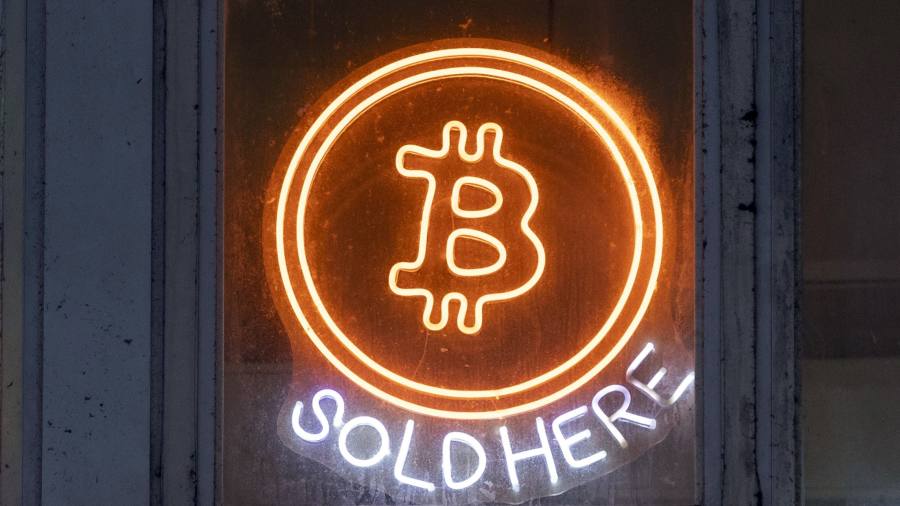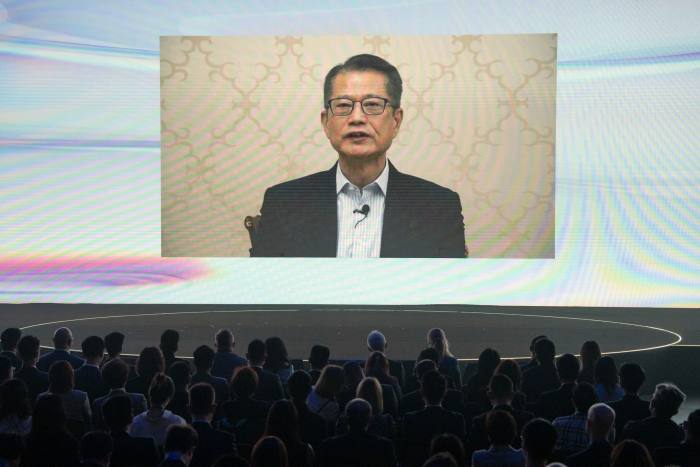
For Hong Kong, the timing of the FTX collapse could hardly have been worse. Just weeks ago, the city underlined its ambitions to be Asia’s premier crypto hub with a banner announcement from Hong Kong financial secretary Paul Chan.
During a week of conferences to celebrate the scrapping of suffocating pandemic restrictions on the territory, Chan signalled Hong Kong was to move towards allowing the retail trading of crypto assets and was exploring the listing of crypto exchange traded funds. “We want to make our policy stance clear to global markets, to demonstrate our determination to explore financial innovation together with the global, virtual-assets community,” said Chan at the end of October.
Sam Bankman-Fried, now facing criminal charges, was even a headline speaker at the Hong Kong event and endorsed the city’s move. “If you look at what the crypto hubs will be in the world . . . if you look at the east, it’s not as obvious,” Bankman-Fried said at the time. “It could be Singapore, could be somewhere like Busan in Korea, but I think there is a real chance it ends up being Hong Kong.” Bankman-Fried established FTX in Hong Kong in 2018, and flourished in the city before moving to the Bahamas last year.
Singapore, Hong Kong’s regional rival, has boomed as the Chinese city hibernated during the pandemic and financial industry talent and private wealth have been flocking to the city state. However, Singapore recently moved towards tightening controls on crypto — to the dismay of market players such as Coinbase.
Chan has emphasised the city will take a cautious approach to crypto. The city’s legislature passed an amendment to anti-money laundering laws in December that might change the city’s freewheeling landscape. As of June next year, virtual asset service providers must comply with anti-money laundering guidelines before being granted a licence of operation. But that might be too late for some who have lost heavily in the boom and bust.
Hong Kong is located on the doorstep of one of the world’s biggest customers of crypto — mainland China. While regulators have been actively weighing frameworks to increase oversight of crypto and introduced an opt-in regulatory scheme for exchanges in 2019, Hong Kong authorities have generally left exchanges and cash-for-crypto shops alone.
Exchanges have openly advertised to retail customers, and back in the heyday of the “kimchi premium” — the frenzy that built up in 2017-2018 around buying crypto in Hong Kong and then selling it at a profit in Korea and Japan — customers would line up around the block with bags of cash to get hold of bitcoin.
Charles Yang, the head trader at Genesis Block, which developed close links to the FTX empire in 2020, said that year that China was its biggest source of clients.
“China is a market where everyone wants to move money in or out,” Yang told a podcast recorded that year. “There’s nothing illegal about it — buying USDT [an asset-backed cryptocurrency] with RMB is totally fine and using that USDT to pay whoever at the other side of the border. This use case is probably still number one.” Yang later described how wealthy Asian gamblers preferred to use crypto rather than cash or wire transfers to move money. Genesis Block and Yang did not respond to a request for comment.
While mainland China has banned the trade in crypto assets since Yang made the comments, many in the industry say it has not swayed interest among citizens. “China loves crypto,” Justin Sun, founder of blockchain company Tron, recently tweeted.
Many retail customers in Hong Kong burnt by the fallout wish it hadn’t been so easy to get their hands on virtual assets before. One investor, a back office staffer at an asset manager, told me she ploughed her life savings into crypto after learning about it on YouTube during the pandemic.
After remortgaging her Hong Kong apartment to top up the investment, she stored the entirety of the funds on local exchange AAX, which boasted of having 2mn users but has since frozen withdrawals and imploded in the wake of the FTX crash. The city’s financial regulators previously said the exchange did not fall under their purview.
“It’s ridiculous when Hong Kong is talking about wanting to be the digital asset hub,” the woman, who declined to be identified, said. “I feel very disappointed about how the regulators have reacted so far.”
